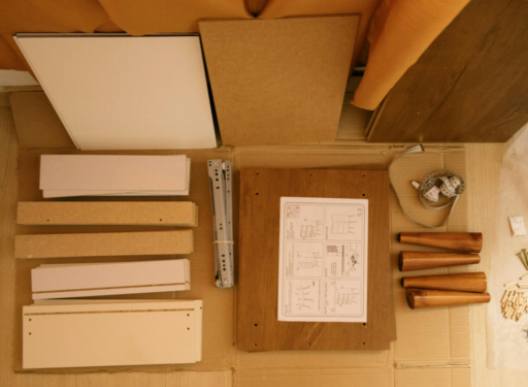The Ultimate Guide to Preventing Costly Plumbing Repairs in Your Home
22 March 2025 by Millie R.Having a well-maintained plumbing system in your home is crucial to avoiding costly repairs and potential water damage. By understanding the basics of your plumbing system and taking proactive steps to prevent common issues, you can save yourself time, money, and stress down the line. From regular maintenance and inspections to knowing when to call a professional, this ultimate guide will provide you with the knowledge and tools needed to keep your plumbing in top shape.

- Slow draining sinks or showers: If you notice that water is taking longer than usual to drain from your sinks or showers, it could be a sign of a blockage in your pipes.
- Water stains or mold growth: Water stains on walls or ceilings, or mold growth in damp areas of your home, can indicate a leak in your plumbing system.
- Low water pressure: If your water pressure suddenly drops, it could be a sign of a leak, clog, or other issue in your pipes.
- Unpleasant odors: Foul smells coming from your drains could be a sign of a sewer line clog or other plumbing issue.
- Strange noises: Banging, gurgling, or other unusual noises coming from your pipes could indicate a problem with your plumbing system. By paying attention to these early signs of plumbing problems, you can take action quickly to prevent more serious issues from arising. Regular maintenance and inspection of your plumbing system can also help to catch problems early on before they become costly repairs.

Understanding the Basics of Your Home Plumbing System
Your plumbing system is responsible for bringing clean water into your home and removing wastewater. It consists of a network of pipes, fixtures, and appliances that work together to provide you with essential services such as running water, flushing toilets, and draining water from sinks and showers. The main components of your plumbing system include the main water supply line, which brings water into your home from the municipal water supply, as well as the various pipes that distribute water throughout your home. There are also drain pipes that carry wastewater away from your home and a sewer line that connects your home to the municipal sewer system. It's important to familiarize yourself with the location of the shut-off valves in your home, such as the main water shut-off valve, as well as the individual shut-off valves for toilets, sinks, and appliances. Knowing how to shut off the water supply can help prevent water damage in the event of a plumbing emergency. Regular maintenance of your plumbing system is essential to prevent costly repairs down the line. Inspecting for leaks, drips, and corrosion, as well as checking for proper water pressure and drainage, can help catch potential issues early on. Additionally, scheduling annual inspections with a professional plumber can help ensure that your plumbing system is in good working order. By understanding the basics of your home's plumbing system and taking proactive measures to maintain it, you can help prevent costly repairs and ensure that your home continues to function smoothly.Regular Maintenance and Inspection
By paying attention to the condition of your pipes, fixtures, and appliances, you can catch potential issues early and address them before they escalate. One important aspect of regular maintenance is checking for leaks and drips in your plumbing system. Even small leaks can lead to water damage and mold growth if left unchecked. Inspect your faucets, showerheads, and pipes for any signs of dripping water and repair them promptly. Additionally, it's important to keep an eye on the water pressure in your home. Low water pressure can indicate a clog or leak in your pipes, while high water pressure can put strain on your plumbing fixtures and appliances. Consider installing a pressure gauge to monitor the water pressure in your home regularly. Another key part of regular maintenance is ensuring that your drains are clear of clogs. Use drain strainers to catch hair and debris before they can cause blockages, and avoid pouring grease or food scraps down your kitchen sink. If you do encounter a clog, try using a plunger or plumber's snake to clear it before it becomes a more serious issue. In addition to checking for leaks, monitoring water pressure, and keeping your drains clear, it's also important to inspect your water heater and other plumbing appliances regularly. Check for signs of corrosion, rust, or mineral buildup, and flush your water heater annually to prevent sediment buildup. By staying proactive with regular maintenance and inspection of your home plumbing system, you can avoid costly repairs and keep your plumbing in good working order for years to come.Recognizing Early Signs of Plumbing Problems
By catching issues early on, you can address them before they escalate into major repairs. Here are some common signs to be aware of:- Slow draining sinks or showers: If you notice that water is taking longer than usual to drain from your sinks or showers, it could be a sign of a blockage in your pipes.
- Water stains or mold growth: Water stains on walls or ceilings, or mold growth in damp areas of your home, can indicate a leak in your plumbing system.
- Low water pressure: If your water pressure suddenly drops, it could be a sign of a leak, clog, or other issue in your pipes.
- Unpleasant odors: Foul smells coming from your drains could be a sign of a sewer line clog or other plumbing issue.
- Strange noises: Banging, gurgling, or other unusual noises coming from your pipes could indicate a problem with your plumbing system. By paying attention to these early signs of plumbing problems, you can take action quickly to prevent more serious issues from arising. Regular maintenance and inspection of your plumbing system can also help to catch problems early on before they become costly repairs.